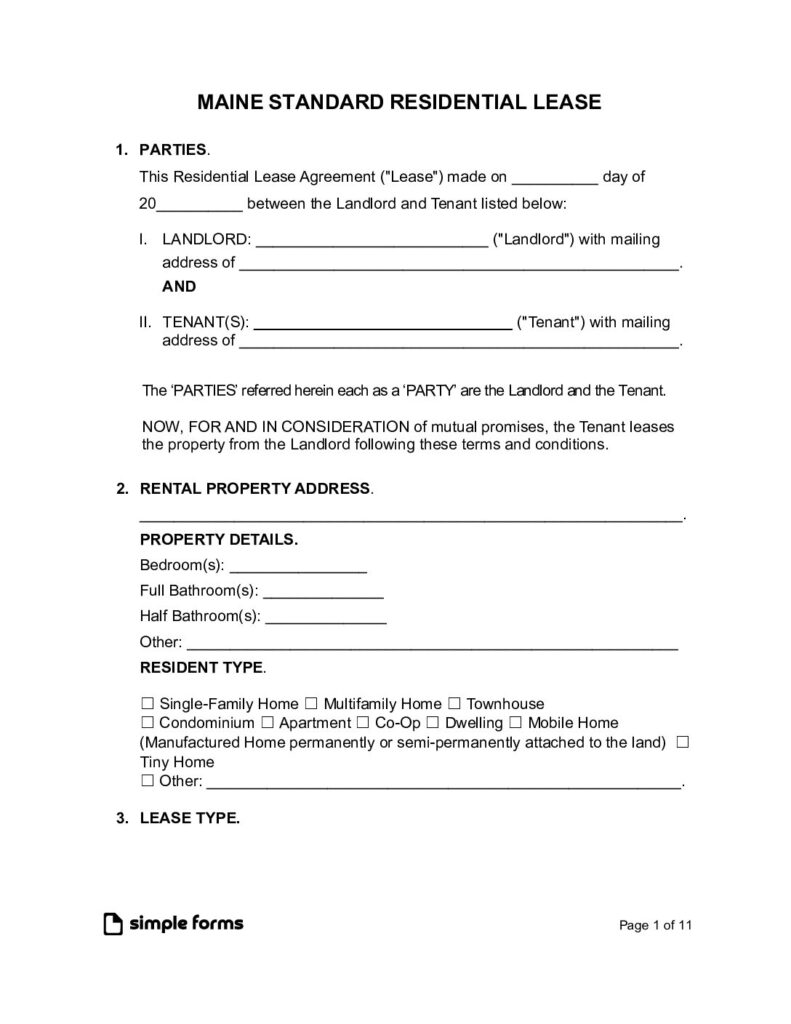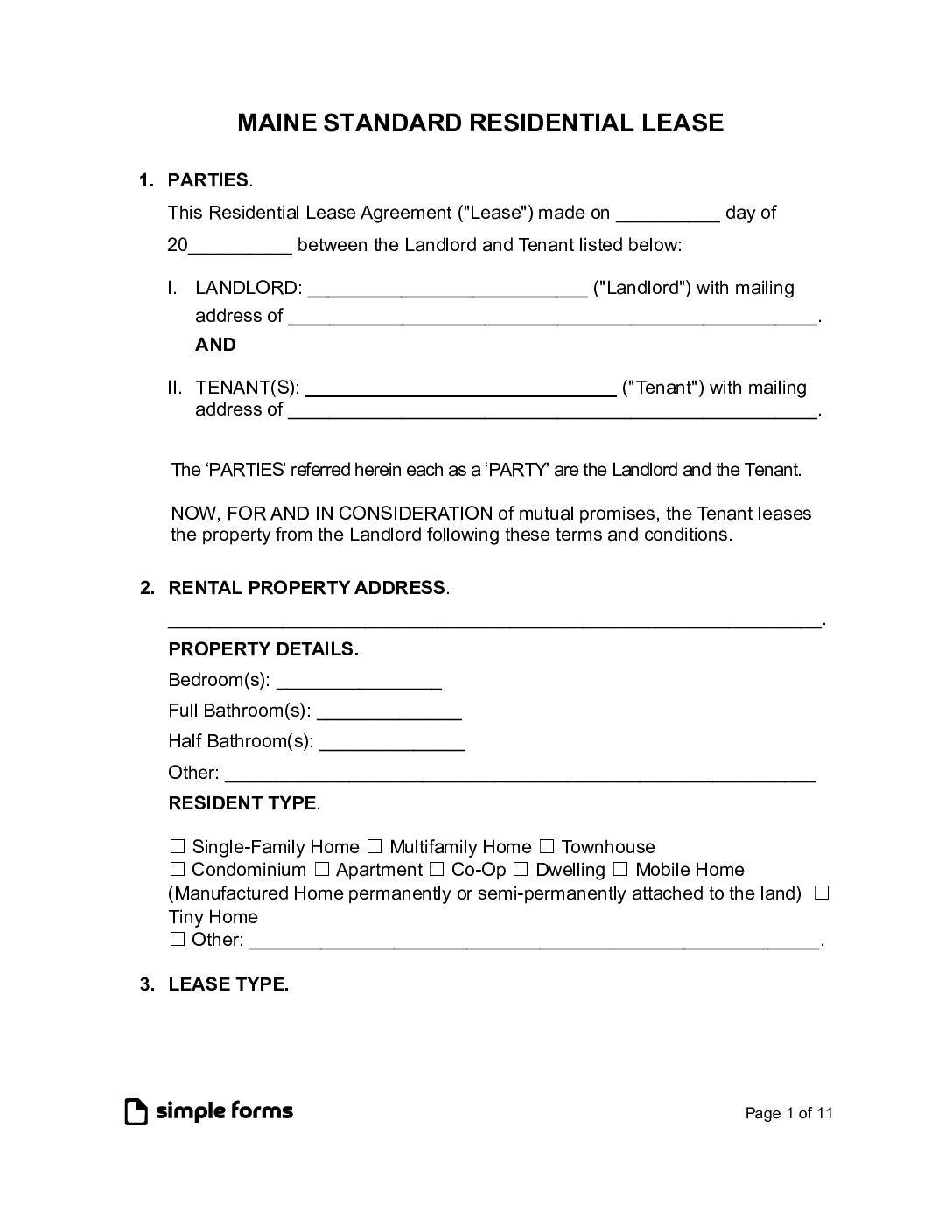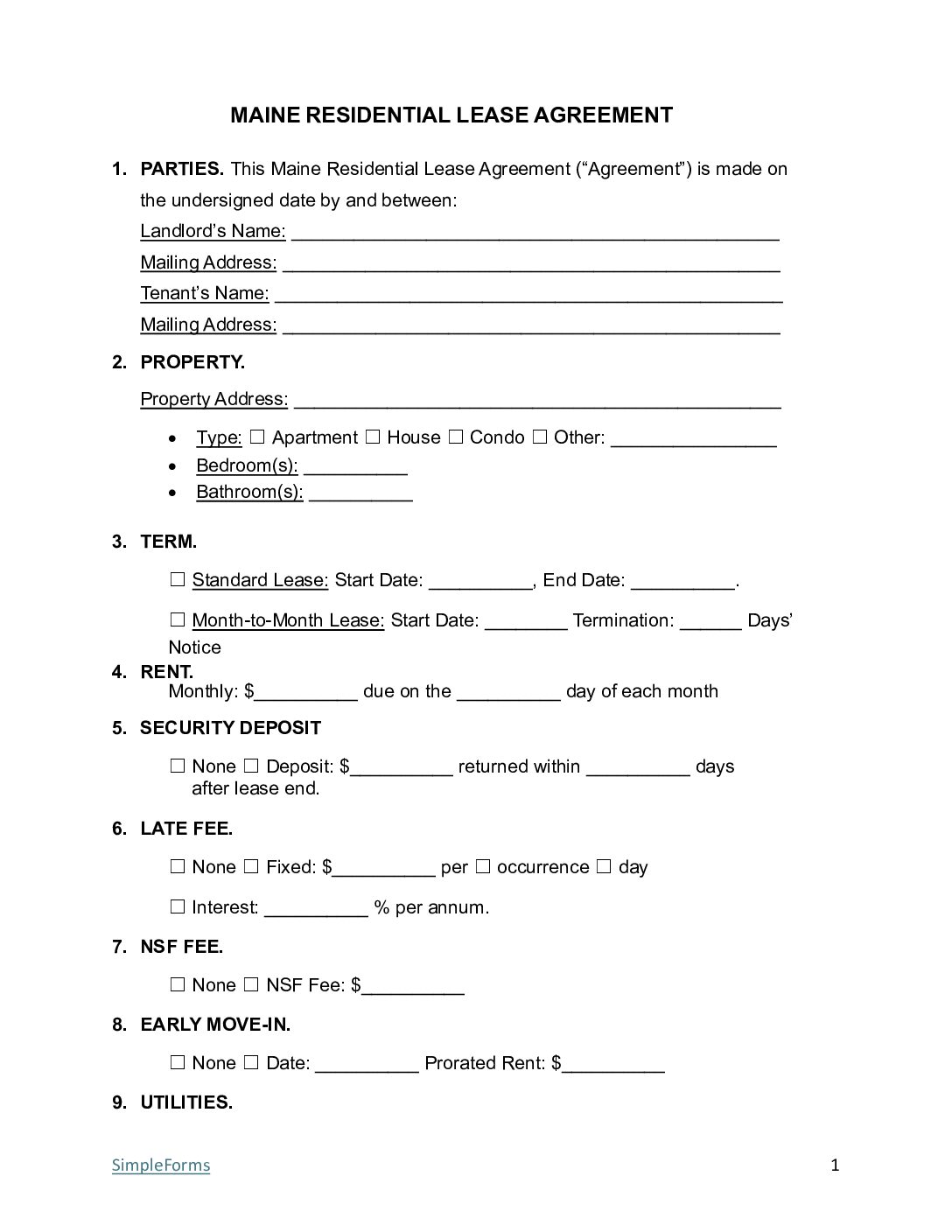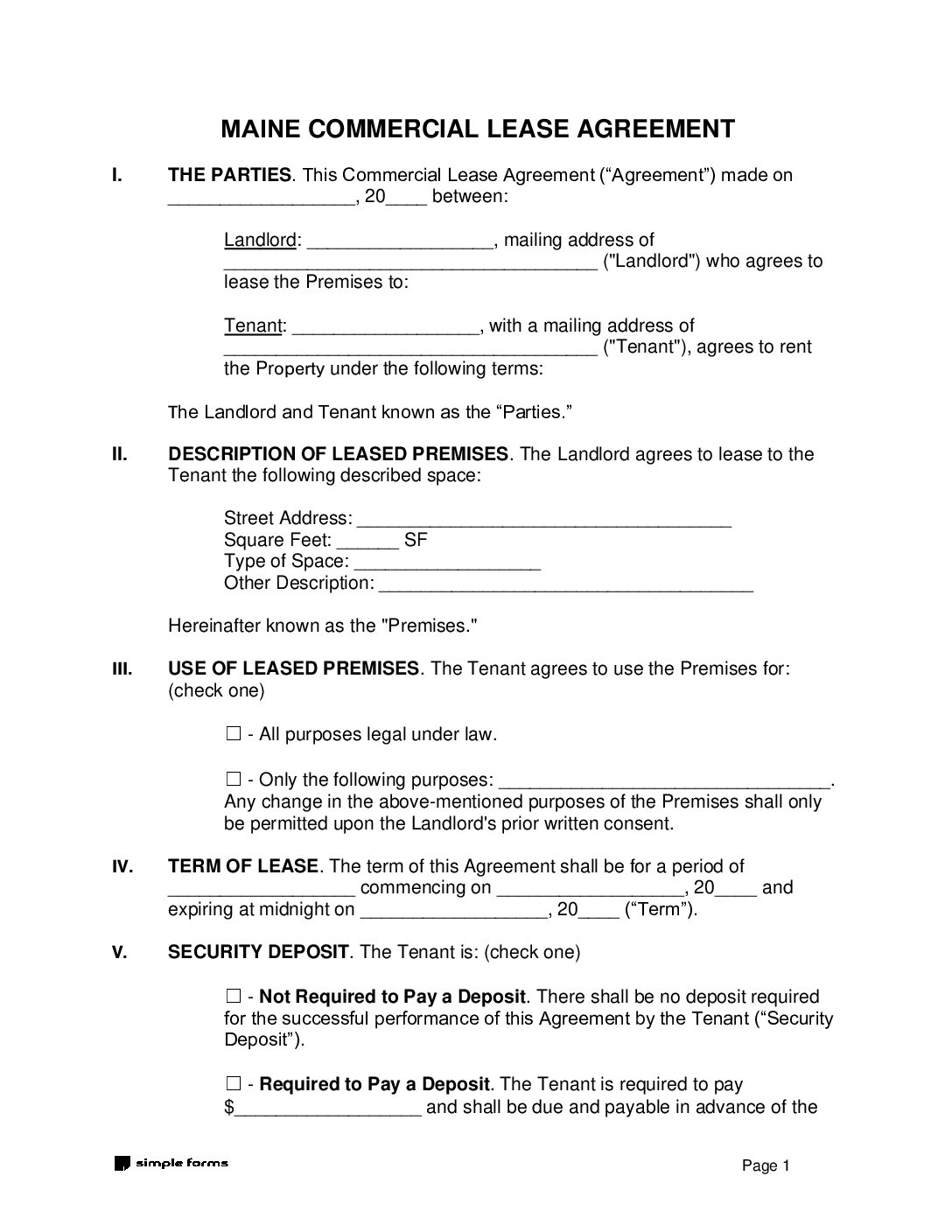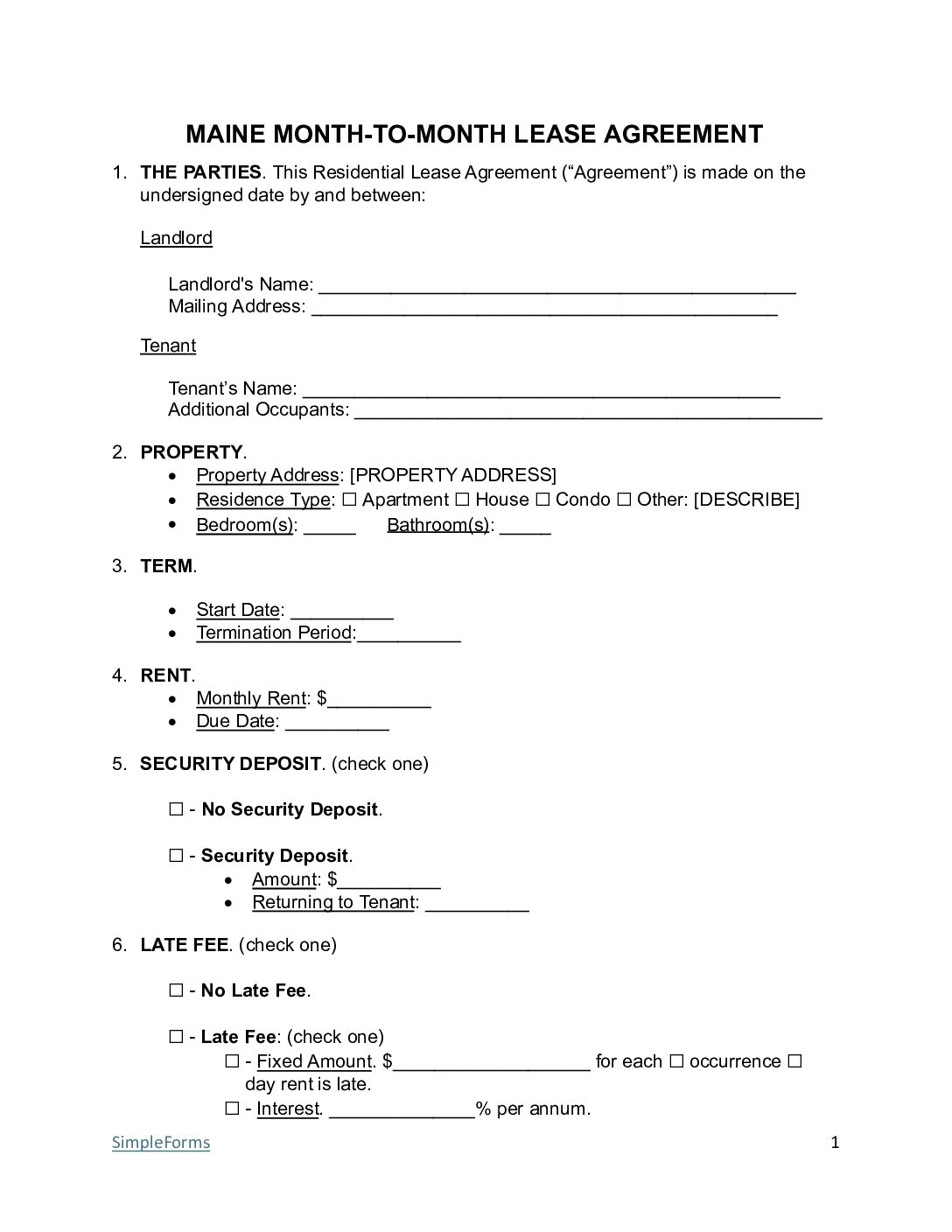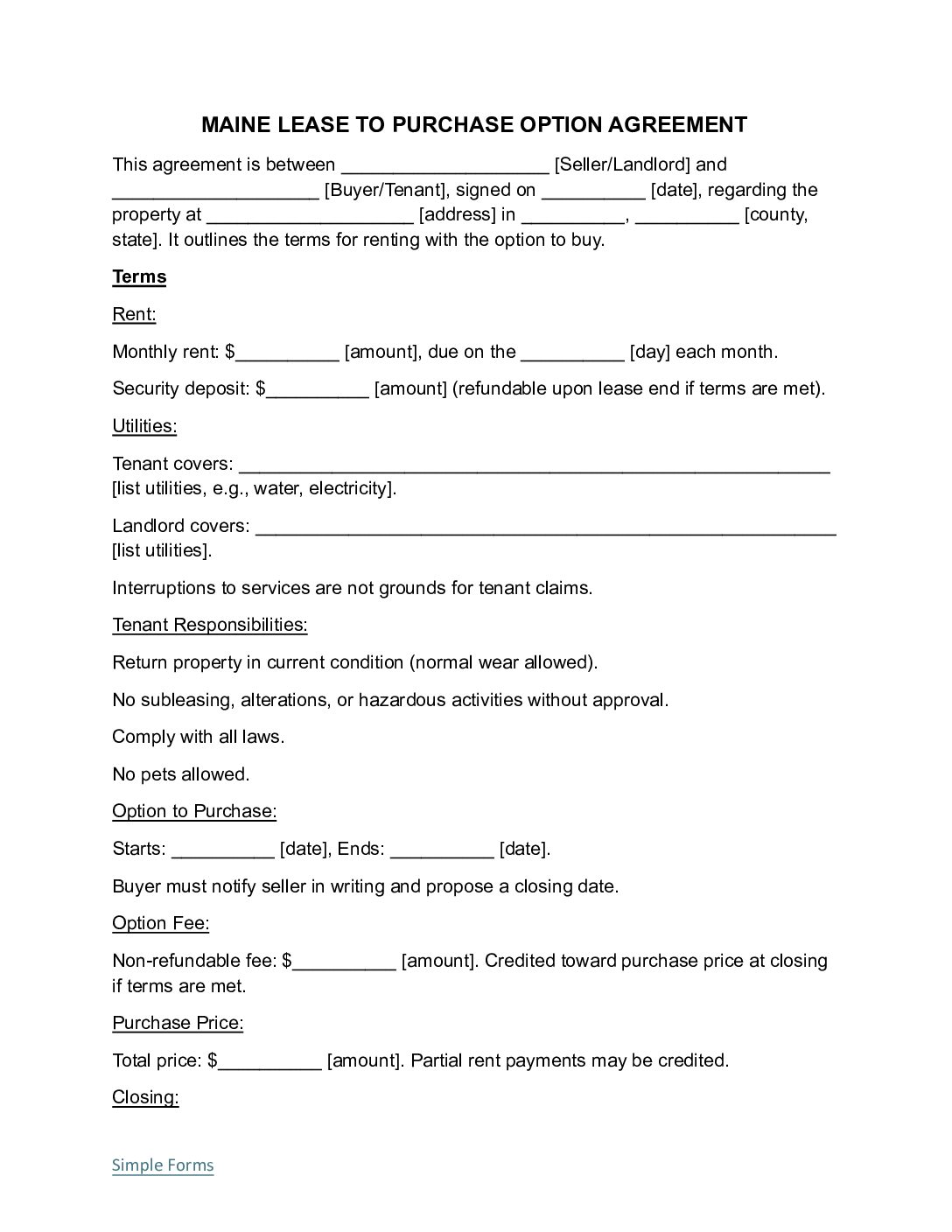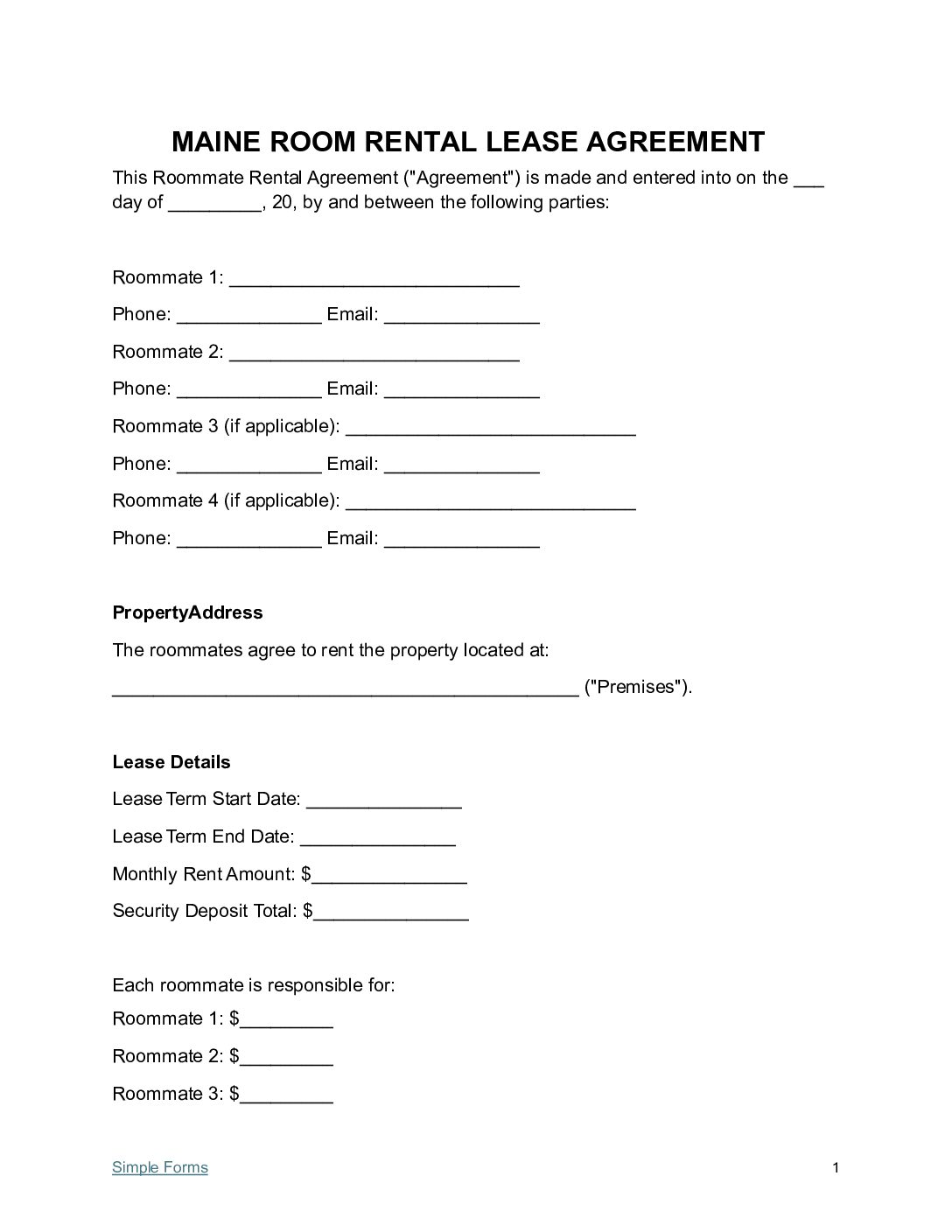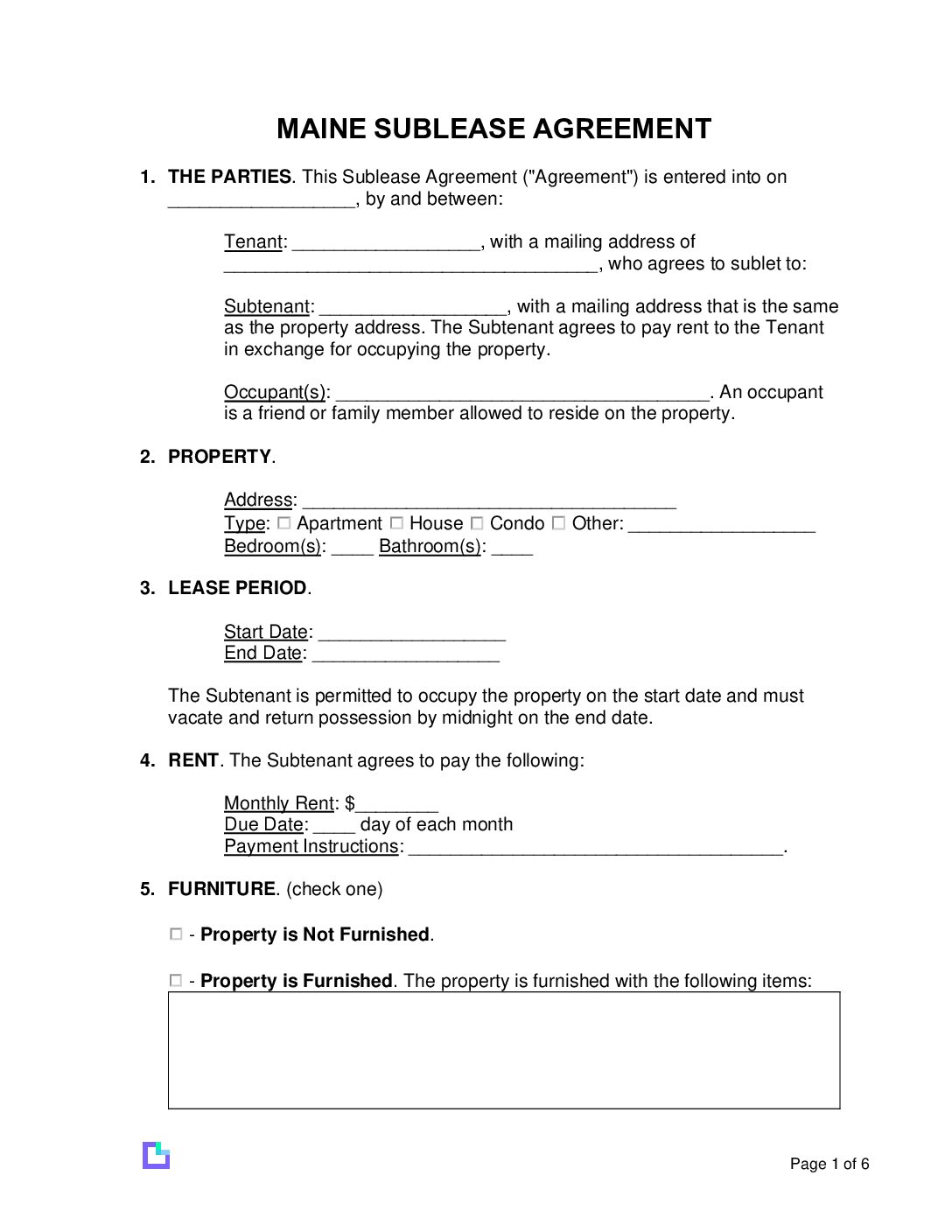Maine Rental Lease Agreements By Type (6)
| Maine Residential Lease Agreement Template – For residential rental properties with a standard 1-year lease term or more. Download: PDF | Word (.docx) |
|
| Maine Commercial Lease Agreement Template – For business use only. Download: PDF |
|
| Maine Month-to-Month Lease Agreement – A lease contract that automatically renews every 30 days. Download: PDF | Word (.docx) |
|
| Maine Rent-to-Own Lease Agreement Template– A contract that gives the Tenant an option to purchase the property during the lease term. Download: PDF | Word (.docx) |
|
| Maine Room (Roommate) Rental Lease Agreement– A contract for shared living spaces and specific room rentals. Download: PDF | Word (.docx) |
|
| Maine Sublease Agreement Template – Used to sublet / rent unit with the Landlords written approval. Download: PDF | Word (.docx) |
What does the Maine Rental Lease Agreement Form Cover?
This document includes the following subjects that pertain to the laws regarding the relationship between the landlord and tenant in Maine:
- Maine Uniform Residential Landlord & Tenant Act
- Security Deposit Law
- Lease Termination
- Landlord’s Access to the Property
- Rent Due Date plus Late Fees
- Eviction Procedures
- Property Maintenance
- Required Disclosure Forms
Maine Uniform Residential Landlord & Tenant Act
Summary (14 M.R.S.A. §§ 6021-6030): Maine’s landlord-tenant laws establish the rights and responsibilities of both parties, including:
- Property Maintenance – Both landlords and tenants must keep the property safe and habitable.
- Fair Housing – Both landlords and tenants are required to follow fair housing laws which ban discrimination of race, color, religion, sex, national origin, familial status, or disability.
Security Deposit Law
Summary (§ 6032, § 6033): In Maine, landlords can collect a security deposit of up to two months’ rent, and they are required to return it (after lawful deductions) within 30 days of the tenant moving out.
- 30 Days – The time frame for returning the deposit.
- Deductions must be documented in writing and shared with the tenant.
- Normal wear and tear cannot be deducted from the security deposit.
- Tenants may sue for up to double the amount of the deposit if the landlord fails to return it in time.
Lease Termination Rules for Landlord and Tenants
Summary: Both landlords and tenants have rights to terminate a lease under the following conditions.
- Landlord’s Ability to Terminate
- 7-day notice for non-payment of rent.
- 30-day notice for lease violations.
- Tenant’s Ability to Terminate
- Tenants may terminate a lease with 30 days’ notice, if there is a domestic violence situation.
- Month-to-month tenants can end the lease with a 30-day notice.
Landlord’s Access to the Rental Property
Due Dates and Late Rent Fees
- Grace Period – Fifteen (15) day grace period.
- Notice to Quit – 7-day notice to quit.
- Maximum – 4% of the monthly rent amount and must be written in the Maine rental lease agreement form.
- NSF Fee – Landlords have the right to charge a fee of 12% of the rent amount in the event of a bounced check.
Eviction Procedures and Notices
Property Maintenance Requirements
Summary: Landlords are obligated to maintain the property in a habitable condition. If repairs are not made after notice, tenants may have the right to withhold rent or terminate the lease.
- Tenants cannot deduct repair costs from rent unless a prior agreement with the landlord says so.
Required Disclosure Forms (8)
Summary: Landlord must give tenants the following forms prior to the move-in date that is written in the Maine rental lease agreement:
-
-
-
- Lead-Based Paint Disclosure (mainehousing.org) – Required for properties built before 1978 to inform tenants of potential lead hazards.
- Bedbugs Infestation Disclosure (Maine Housing) – This form discloses any bedbug problems in the past.
- Electricity to Common Areas (§ 6024) – The landlord cannot charge the tenant for electricity, heat, or any utilities related to common areas, such as hallways and stairwells, unless both parties agree.
- Energy Efficiency Disclosure (§ 6030-C) – The landlord is required to complete and have the tenant sign the energy efficiency disclosure form.
- Radon Disclosure Form (§ 6030-D(1))- Since 2012, landlords must check for radon every 10 years and provide this form to all tenants.
- Rental Housing Rights Disclosure Form (Portland ONLY) (City of Portland, Maine – Rental Housing Rights) – This form must be provided to tenants prior to occupancy.
- Security Deposit Location (§ 6022)- For properties with four or more units unless the landlord lives in a unit then five or more units.
- Smoking Policy (§ 6030-E(3)) – Must be clearly outlines in the agreement and it should include the policies for designated smoking areas, if allowed on the rental property.
-
-
